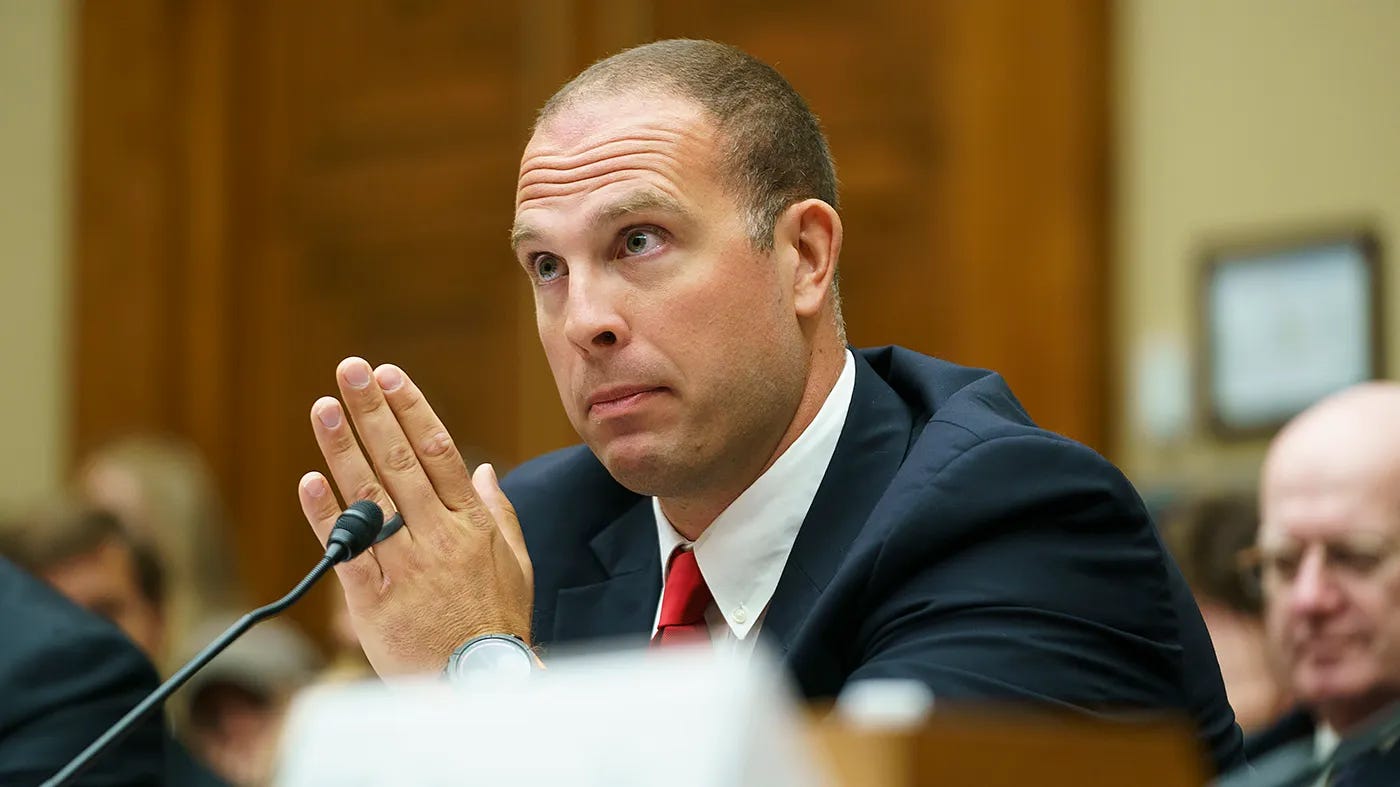“The Disclosure,” “The Collection,” and Long-Held Secrets: The Fight For Government Transparency Around UAPs
To Believe Or Not To Believe?
On November 14, 2004, off the coast of Southern California, fighter pilot Commander David Fravor of the USS Nimitz Carrier Strike Group witnessed something he would never forget.
The strike group had been tracking an aerial anomaly for about two weeks beforehand, and on that day, he found himself face-to-face with it. Due to its unusual shape, they named the object "The Tic-Tac."
"As all four of us looked down we saw a small white Tic Tac shaped object with the longitudinal axis pointing N/S and moving very abruptly over the white water. There were no rotors, no rotor wash, or any visible flight control surfaces like wings," he said in his statement to the House Oversight Committee.
Established in 2022, the All-domain Anomaly Resolution Office (AARO) is an office within the United States Office of the Secretary of Defense that investigates UAP/UFO phenomena.
What followed -- and continues to unfold to this day -- was, in Commander Fravor's own words, the unveiling of information that "opened a door for the Government and the public that cannot be closed."
According to D.C.’s first UFO lobbyist Stephen Bassett, this might happen sooner than we think in an event that members in the UFO community refer to as “The Disclosure.”
“The Schumer-Rounds Bill, I think, is the most important single piece of legislation ever passed … ever by any legislative body in history,” said Bassett.
Bassett is referring to a national defense bill put forth by Democrat Senate Majority Leader Chuck Schumer (D-NY) and Senator Mike Rounds (R-SD) back in July 2023 in an effort to release previously classified information around UAPs to the public.
To the surprise of many, the bill is one of the few with strong bipartisan approval. Among its other supporters: Senator Marco Rubio (R-FL), Senator Kirsten Gillibrand (D-NY), Senator Martin Heinrich (D-NM), and Senator Todd Young (R-IN).
If the bill is enacted, the U.S. National Archives will be responsible for assembling what is referred to in the language of the bill as “The Collection” consisting of “Government, Government-provided, or Government-funded records relating to unidentified anomalous phenomena, technologies of unknown origin, and non-human intelligence” which will be passed onto lawmakers and President Biden for review.
The term "technologies of unknown origin" means any materials or meta-materials, ejecta, crash debris, mechanisms, machinery, equipment, assemblies or sub-assemblies, engineering models or processes, damaged or intact aerospace vehicles, and damaged or intact ocean-surface and undersea craft associated with unidentified anomalous phenomena or in corporating science and technology that lacks prosaic attribution or known means of human manufacture.
Excerpt from the proposed Unidentified Anomalous Phenomena Disclosure Act (UAPDA)
Bassett, as well as others in the UFO community, believes that the combined factors of David Grusch’s unprecedented testimony before the U.S. House Subcommittee on National Security in July, combined with the timing of the Schumer-Rounds Disclosure Bill and the recent stepping down of Dr. Sean Kirkpatrick – the director of the All-domain Anomaly Resolution Office at the United States Department of Defense – is setting the stage for “The Disclosure.”
Kevin Wright, the founder of the DC-based public relations and media consulting company Solve Advocacy, has focused his efforts around the “edge sciences” and being an advocate for UAP disclosure over the past two years.
In contrast to Bassett, Wright was more measured in discussing a potential Disclosure event in the near future.
Whistleblower and former intelligence officical David Grusch testifying before the U.S. Oversight and Accountability subcommittee on July 26, 2023. (AP Photo/Nathan Howard)
“It's entirely possible,” said Wright in response to Bassett’s theory that a full unveiling of classified UAP information might occur early in 2024. “Especially if the Schumer-Rounds UAP Disclosure Act makes it through the National Defense Authorization Act. If that makes it through, then it's going to make it much more difficult for other government agencies like AARO to continue to obfuscate.”
The UAP community is seemingly split on whether or not the bill is expected to be passed. While many have little to no doubt that it will move forward, advocates like Wright believe there’s a split chance considering strong resistance among specific lawmakers.
"Learning that we're not alone, learning that we're actually being gauged by these other civilizations, is going to be a major worldview changer. It provides a completely new perspective," said Bassett.
There is an ongoing consensus that the pushback on the bill – mainly coming from the Republican lawmakers including Rep. Mike Turner (R-Ohio), Rep. Mike Rogers (R-AL.), Senate Minority Leader Mitch McConnell (R-KY.) and Speaker of the House Mike Johnson (R-LA) – is due to personal financial interests and alliances being at risk for members “deriving a significant amount of money from defense interests, particularly the aerospace defense contractors,” said Wright.
Both Wright and Bassett believe that with the potential passing of the Schumer-Rounds UAP Disclosure Act comes an array of threats towards defense contractors who have reverse-engineered recovered crash materials, aim to secure patents for new technology, and may even face potential criminal liabilities in terms of documents they’ve signed to keep information hidden.






